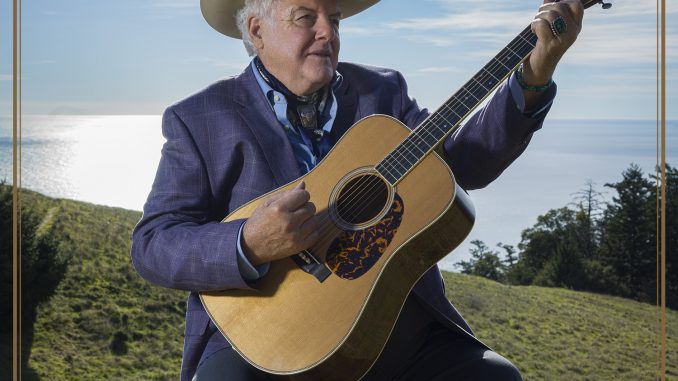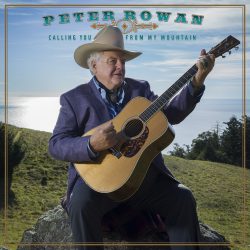
If you ever doubted bluegrass’s continuing relevance then this is the album to hear.
 The rollicking take on Woody Guthrie’s ‘New York Town’ that starts ‘Calling You From My Mountain’ proves that Peter Rowan’s voice is still in good shape despite having been performing since the early sixties.
The rollicking take on Woody Guthrie’s ‘New York Town’ that starts ‘Calling You From My Mountain’ proves that Peter Rowan’s voice is still in good shape despite having been performing since the early sixties.
Initially the songs on this album were written “in homage to Hank Williams and his alias, Luke the Drifter”, but under pressure from the isolation of lockdown they became a reflection on Rowan’s career. Tex Logan’s ‘Come Along Jody’ which features fiddle player Julian Pinelli harks back to his time with Old And In The Way. Rowan spent sometime working with Logan, playing shows based on the material recorded by Old And In The Way in the seventies. ‘The Song That Made Hank Williams Dance’ features Shawn Camp taking lead vocal on one verse. On ‘From My Mountain’ a song inspired by the escape from Tibet of his longtime friend, singer, Yungchen Lhamo, Molly Tuttle shares lead vocals with Rowan, with harmonies from Lindsay Lou.
Rowan’s own band is as young as his guest stars. He says: “I’ve got a young band, it’s fabulous. They’re bursting with ideas. They’re in their years of inspiration. They’re really quick learners and their ears are wide open because this generation is built on everything we did, dare I say, all those years ago.”. And the energy and enthusiasm for Bluegrass in all its styles and variations jumps out of the speakers. Rowan is clearly inspired by the players to write material worthy of them, and unearth old songs to cover. Having played the Carter Family’s ‘Little Joe’ early in the album, he also offer his own Carter style song ‘The Red, The White and The Blue’, again sung with Molly Tuttle, who also plays Banjo, with Shawn Camp adding guitar. A simple masterpiece of country music.
Some songs date from decades back. “I wrote ‘The Light at the End of the World‘ while touring Japan in 1971 with Richard Greene, Andy Statman and Tony Trishka. The song wanted to be sung now” he says. The covers come from early in his career as well. “Lightnin’ Hopkins’ ‘Penitentiary Blues’ was a revelation to me. I heard it while I was still playing record-hops as a kid around Boston”. The three part ‘Freedom Trilogy’ closes the album and harks back to the music he was playing in the late sixties. The most complex piece on the album musically, it is still rooted in traditional country and Bluegrass.
Every so often these styles seem that everything that can be done with them has been done, and then along comes a Peter Rowan to energise a new generation and inject new ideas, and new vibrancy. If you want to hear the state of the Bluegrass Art, and where it will be going for the next ten years, listen to this album.


